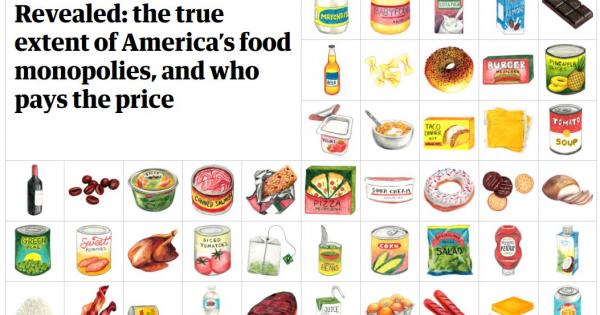Wow, wasted fifteen minutes of my watching your two videos. Talk about catering to idiots, both those guys are total numbnuts.
The first guy mentioned this study from McKinsey.
Grocery executives face a host of new challenges, including flat growth and margin pressure. Five trends could point the direction to renewed momentum.

www.mckinsey.com
To bad he either didn't read it or doesn't understand it. The critical takeaway,
However, rising capital expenditures have also contributed to margin pressure for both grocery retailers and consumer packaged goods (CPG) companies. Over the past decade, this increased spending has outpaced revenue growth. The capital expenditure–revenue ratio was 23 percent lower in 2022 than in 2012, highlighting the divergent paths of these metrics. From 2018 to 2022, EBITDA margins for grocery retailers and CPG companies decreased 0.4 and 1.5 percentage points, respectively
So, this guy sees declining margins and wants to focus on that. What he doesn't see is those capital expenditures, the vast majority of it on supply chain management. Those expenditures will lower costs in the long run and those savings WILL NOT be passed on to consumers.
I was raised in the grocery business, literally. My father started out as a bagboy and made it to the executive suite. I was in elementary school when he was a store manager, in High School he was a district manager. I started out in the grocery business, then went on to finance, but when the kids were all grown and I could afford the hit to income, I returned to grocery. Now, I am a rainmaker. A gunslinger. A
highly sought after change agent, companies bring me in to shake things up and I deliver results.
Let's look at example of that capital investment. We go no further than Walmart. Pre Covid, well Walmart had a perpetual inventory system with automated ordering. In many cases, suppliers were the ones creating those orders. Not ideal, but efficient. But it took labor hours to scan the holes, adjust the counts, and create the "picks", items that can go out from the backroom. Today, a robot scans the outs. And the picks, the employee pulls out his company provided cell phone, takes a picture of the "bin", where items are stored, and on that picture each case that will go out is marked. Talk about efficient. Nobody does it better than them, but that ain't going to give you a break in price.
Harris's proposal has nothing to do with price controls. It is about enforcing price gouging laws, already in place in more than 35 states. It is about enforcing collusion regulations and anti-trust laws. Something the government has stepped away from for more than four decades. You hear about the small margins of grocery retailers, and they are small, but they are usually above three percent. Back in the day, when I was growing up, they rarely exceeded two percent. But it is not the grocer retailers, it is the food processors and suppliers. Their margins average above 25%, that is insane. And here is the kicker,
In fact, a few powerful transnational companies dominate every link of the food supply chain: from seeds and fertilizers to slaughterhouses and supermarkets to cereals and beers.
The size, power and profits of these mega companies have expanded thanks to political lobbying and weak regulation which enabled a wave of unchecked mergers and acquisitions. This matters because the size and influence of these mega-companies enables them to largely dictate what America’s 2 million farmers grow and how much they are paid, as well as what consumers eat and how much our groceries cost.
Investigation shows scale of big food corporations' market dominance and political power Illustrations by Julia Louise Pereira A handful of powerful companies control the majority market share of almost 80% of dozens of grocery items bought regularly by ordinary Americans, new analysis reveals...

portside.org
Do you know any chicken farmers? How about dairy farmers? Both find themselves with no power, no competition. They can sell to one entity and they have to accept what they get paid. They get squeezed, and the consumer gets squeezed because of a lack of competition. Tyson dominates the chicken market. JBS dominates beef. China and Brazil, just how smart are we? Smithfield dominates pork, China again.
I am here to tell you, there is a lot of collusion going on, a bunch of price-fixing happening, and monopoly power within the food industry is very real. Time the federal government stepped up and enforced the laws on the books. That is all Harris is proposing.


